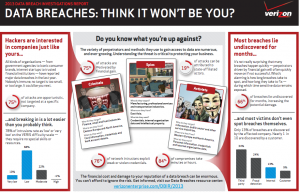What Are NSA’s Standards for Surveilling Transnational Crime Organizations?
Yesterday, the Italian magazine Panorama claimed that the NSA had wiretapped the Vatican.
I have some questions about the veracity of the report. NSA has denied it more vigorously than other allegations of tapping world leaders. Panorama is not known to have access to the Edward Snowden documents. One key claim — that the current Pope, Jorge Mario Bergoglio, has been surveilled since 2005 — was actually sourced to WikiLeaks in the story (In addition to cables on Argentine politics, Bergoglio shows up in a 2003 cable speculating on the possibility of a Latin American Pope).
All that said, I am intrigued by this claim.
Panorama said the recorded Vatican phone calls were catalogued by the NSA in four categories – leadership intentions, threats to the financial system, foreign policy objectives and human rights.
I did a quick review of WikiLeaks cables on the Vatican (remember, these are classified at no more than the Secret level, and therefore are not going to have any intercept information in them, and they of course stop at 2010). The human rights issues pertain to interfaith dialogue and the rights of Catholics in repressive countries, the Church’s role in anti-gay laws, and allegations of anti-Semitism (this cable, on the Church prioritizing unity and thereby endorsing Holocaust denial, is one of the few Secret ones). There are fewer that relate directly to the Church’s role in the financial system; though a good many cables with “financial” content relate to Syria or, especially, Lebanon, and include the Vatican because of its influence with Christian power brokers in the region (this cable, on Syrian money laundering, was forwarded to the Vatican mission for some reason).
But there two other reasons why the Vatican might be an NSA target based on those topics: its multi-decade cover-up of pedophilia (and the impact legal investigations and settlements might have around the world), and the Vatican’s role in money laundering. The recent disclosures of Vatican money laundering suggest Iraq, Iran, and Indonesia have used the bank, as well as the Italian mafia, but given its ties to Lebanon, I wouldn’t be surprised if it were also laundering money from that country, which is another close focus of the US’ own money laundering attention.
In other words, in addition to wiretapping the Vatican because it wields special influence in countries around the world (the leadership intentions and foreign policy objectives category), the US would have reason to surveil it because of what amount to Vatican actions that make it a Transnational Criminal Organization, completely apart from matters of faith.
That is, if NSA applied its apparent mandate to track TCOs indiscriminately.
But I bet you they don’t. While I am sure they track Latin American, African, and South Asian drug networks, I’m certain they track Russian mobsters who have ties to online crime, and I’m sure they are tracking and probably have an active role in the investigation of Yakuza’s ties to big Japanese banks (most of these are either named Treasury drug kingpin or TCO targets), I also believe if the NSA tracked transnational crime organizations generally, its efforts would be shut down tomorrow.
Imagine, for example, if in addition to using Title III wiretaps (though barely) and self-disclosure and evidence generated by other financial institutions in put-back suits, the NSA used its bulk collection to track JPMC’s international transfers to see whether any of it constituted “foreign intelligence,” and from that referred any evidence of a crime to the FBI? Imagine if the NSA were stealing all of JPMC’s transfer information, even outside its access to SWIFT, to see how JPMC laundered its world-destabilizing actions through multiple jurisdictions? And both JPMC and HSBC have a known history of material support for terrorism, which certainly ought to justify such spying (noting, of course, that I think JPMC did get spied on in conjunction with the Scary Iran Plot, which may have forced FinCEN to settle with it on other outstanding sanction violation issues).
They wouldn’t even need to track JPMC and other multinational banks in the name of transnational crime and terrorism; the Sovereign Wealth Funds of the world — both of volatile Middle Eastern countries, Asian targets, but even in Europe — have effectively become foreign policy entities. Do they track what Qatar and the Emirates do with their SWFs?
As I said, I doubt it. While I suspect as this scandal develops we’ll find more and more evidence that the NSA has spied on targets selected for their financial competition with the US and UK (we’ve already seen hints they collected intelligence on the Euro versus the dollar, Brazil’s competitive position vis as vis the US, for example), I also suspect if there were ever a hint that the NSA treated JPMC or HSBC like it did other TCO targets, it would get shut down in a matter of weeks.

